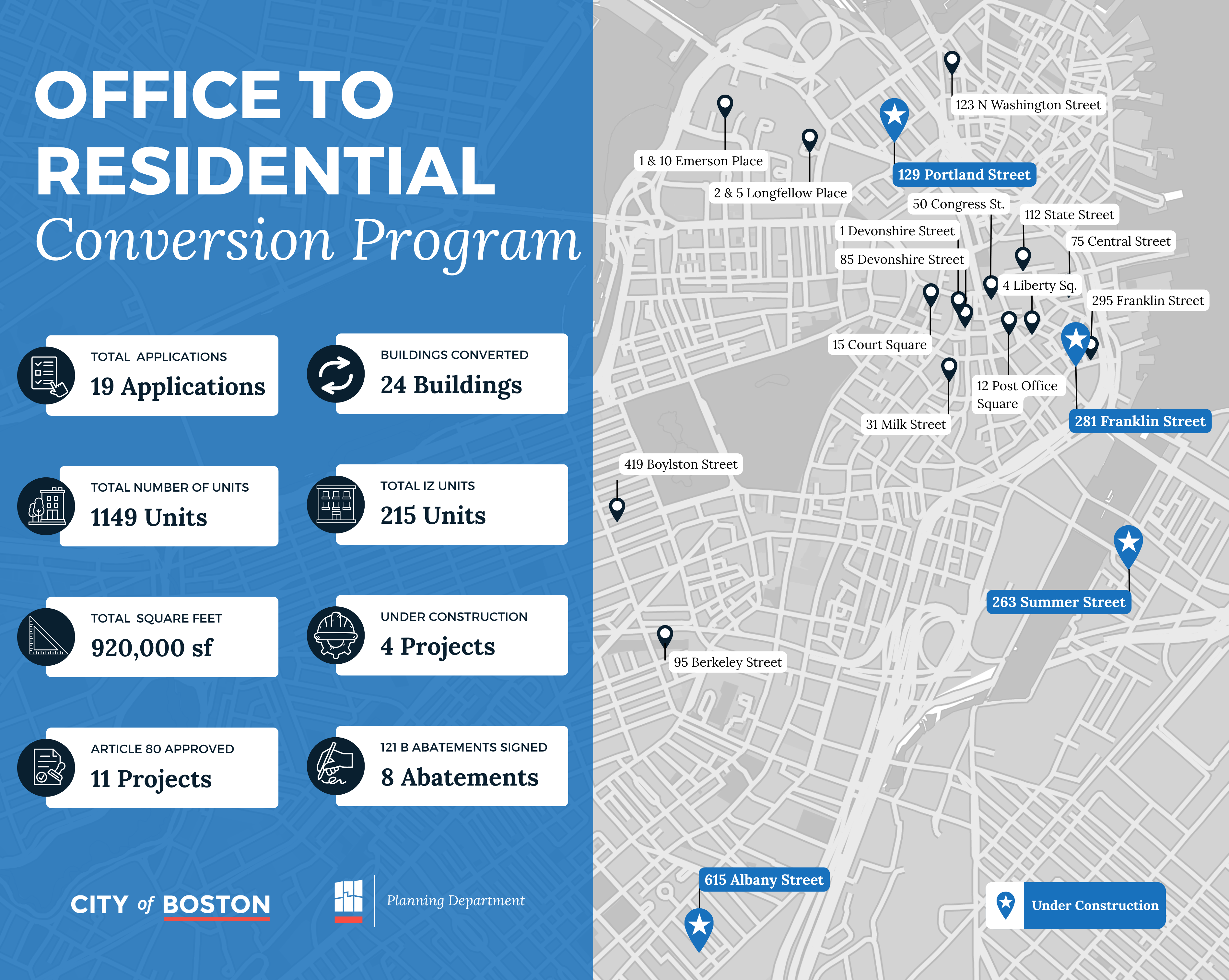-(39-5-x-31-5-in)-(1))
Learn about the Program
An application for the program is now available for qualifying property owners. To qualify, you must either own the property you wish to convert or have a signed agreement with the existing owner granting exclusive site control. After you have downloaded and reviewed the PDF application, please reach out to John Weil to discuss details of your project. Following that initial conversation, if you remain interested in participating in the program you should then complete and submit the application through our online portal. If you have a signed LOI showing exclusivity over the property, please submit that with your application.
Sign up for updates to the program below.
Click below to view our December, 2025 presentation

Goals of Conversions
-
Build much-needed housing,including affordable rental
-
Respond to post-pandemic lasting economic shifts
-
Activate properties currently facing increased office vacancies
-
Create an active mixed-use Downtown beyond work hours
Key Elements
-
Proponents will enter into a payment in lieu of taxes, or “PILOT” agreement which will provide for an average abatement of up to 75% of fair market assessed residential value for a length of up to 29 years, with terms to be negotiated with the Assessor. The agreement will require conversion of use from commercial to residential soon after the signing of the PILOT.
-
Fast-tracked processes for both Article 80 and permitting.
-
As-of-Right zoning for conversion to residential where applicable per PLAN: Downtown.
-
Additional height/FAR possible, with up to 50% of existing GFA depending on site specific considerations
-
Proponents interested in different housing typologies are encouraged to contact staff to discuss innovative approaches and solutions
Requirements
-
Must complete application by December 2026 and start construction (i.e., have a full building permit) 1 year later, for new applicants.
-
Affordable Housing Requirement: Per newly-approved Inclusionary Zoning Standards: 17% of all newly created units must be deed restricted affordable for households making up to 60% of the Area Median Income, and for Art. 80 Large Projects another 3% of units must be available at Fair Market Rent and reserved for voucher holders.
-
Compliant with the Stretch Energy Code, where applicable, and not in conflict with other regulations.
-
This program is not for complete demolition and new ground-up construction.
-
The program will consider projects with up to 20% of total units being micro-units, on the condition that micro-units are not included among the income restricted portion of the project.
-
After permit has been pulled, the PILOT agreement will give the City the right to cancel the abatement and clawback any forgone tax revenues if there is evidence that the developer is not diligently pursuing construction.
-
If you have a project that you would like to convert that does not meet the requirements and qualifications listed above, staff will consider all applications for their eligibility in meeting the City’s goals in this program.
Why Incentivize Conversions of Office to Housing?
Conversion of underutilized office space is an important response to post-pandemic economic and workforce shifts that appear to be long-lasting. These challenges exist beyond Boston and are receiving broader attention at the national and state levels with other major cities including Chicago and Pittsburgh, which have also launched similar programs in response. The City’s program is designed to help increase economic activity in Downtown Boston by increasing the amount of people living downtown, while helping stabilize the office market.
The release of the Downtown Revitalization Report in October of 2022 as part of PLAN: Downtown showed that downtown office space vacancy rates had been steadily increasing. In response, Staff gathered information from developers on their interest in residential conversions and possible pathways to achieve more housing Downtown. HR&A Advisors Inc. also produced a report on the feasibility of office conversions in Downtown Boston and the Financial District. This research suggested that partnership with the City was the most financially feasible path forward for private developers to be able to expediently complete residential conversions due to the high cost, especially in this moment of high interest rates.
Additional Resources
For more information on the program, please contact John Weil, Head of Office-to-Residential Conversions.